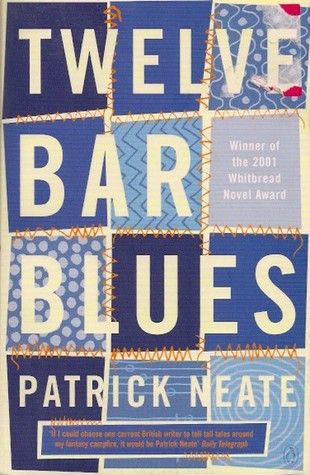When a young princess falls in love with a peasant boy because of his beautiful singing voice her father is not pleased. And neither is the boy’s friend, the son of the village witch doctor. A few magic spells later and the boy is whisked off to slavery in the Americas, leaving the witch doctor’s son to take his place. But the girl, broken hearted, and wearing a headdress decorated with sea shells, dies by the side of a lake.
The rest of Twelve Bar Blues follows the unravelling of this act of betrayal down the generations and across the world.
Patrick Neate won the Whitbread Prize for Twelve Bar Blues, which begins with this fairy tale about a princess, set in an African village in the mists of time, and takes in London New York and New Orleans before returning to the same village by jumbo jet.
It is a novel full of wit, humour and crazy characters. There is Lick Holden, the greatest jazz cornet player never known. When he is incarcerated for a childhood misdemeanour we discover that the warden runs the prison during the day, but at night the law of the jungle applies. It is a terrifying time for Lick, though the horrific and violent descriptions of clandestine bullying have an element of comedy that distances the reader from its cruelty. Lick finds his way to the prison band and impresses the bandmaster with his ability to blow the cornet with both his chops and his head. Playing at his mother’s funeral he unleashes his heart, and further trauma means there is more to come.
We watch Lick in Cooltown, Louisiana in 1908, then in Storyville, New Orleans where he teaches Louis Armstrong the hot new style. There are hookers, speakeasies and violent dives. Back in Africa a new village chief falls in love with a woman with ears like a monkey because he loves the jazz she plays on the hi-fi. He is living in a concrete hut, and worrying about his manhood when Corissa Pink, a black archaeologist from Detroit turns up with an African headdress that she found in the bed of a nearby lake. The seashells used as decoration intrigue her as Zambawi is many miles from the coast.
Back in London, Sylvia, a prostitute with Italian and African blood, leaves for New York to investigate her roots. The drunken English youth she meets on the plane may well be a cipher for the author of this story. He is one of the few white characters in the novel, and almost the only one portrayed in a favourable light. Together they search for Sylvia’s family in New York and Chicago. The people we meet during their travels are grotesque or amusing caricatures, and include a black evangelist driving a limousine and a seedy, slum dwelling eighty year old Italian uncle waiting for a prostitute to arrive and give him a blow job.
In Chicago they meet a wayward African witch doctor who is the reincarnation of the man who cast such a vicious spell in the opening chapter. His attempt to draw the story to its conclusion by making good his ancestor’s guilty deed takes us to the end of Twelve Bar Blues.
This was a great novel in so many ways. I loved the crazy characters, the wild and varied settings, and the way the plot seamlessly drew together such different times, locations and events. The African chief living in a concrete hut is perfectly drawn picture of a man in a middle age crisis. In him and other characters the author shows us human frailty, but there are depths of love and companionship that provide both optimism and humour.
I wonder how this novel – published in 2002 – would be accepted now, in a time when I have heard people claim only disabled actors can play the part of Richard 3rd, and only black men can play Othello? Cultural appropriation is defined as the exploitation of cultural traditions for profit: for example Exeter Chiefs rugby team using an Indian headdress and name as a slogan or logo. Neate is a white man who makes us laugh at black people by exploiting stereotypical representations of them, their ability to play jazz, and their role in criminal activities. Sadly, I can feel myself being sucked down into a woke quagmire!









